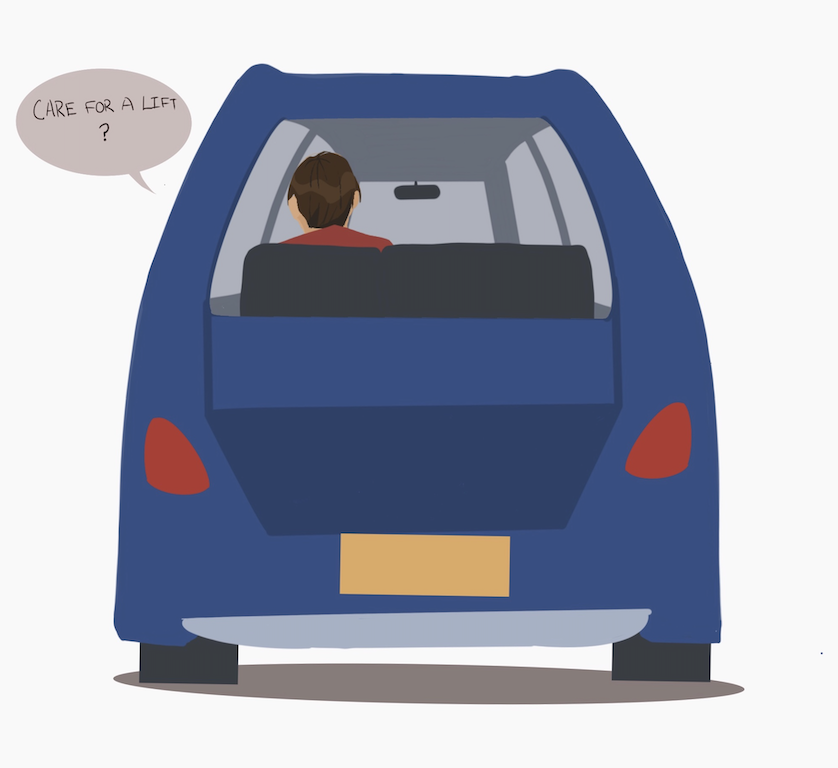OPINION: USC should suspend its partnership with Lyft

Los Angeles Mayor Eric Garcetti came under fire at the end of March for attending a Lyft event when, just a few days earlier, Lyft and Uber drivers were striking for better wages and treatment by their companies. According to the Los Angeles Times, drivers for both companies consider their rates “untenable” — especially for living in a city as costly as L.A. As these strikes continue, USC should reconsider its involvement with Lyft, a company that many drivers and their union Rideshare Drivers United believe do not pay a living wage.
While USC’s Safe Rides collaboration with Lyft is valuable for students, USC should not partner with a company that does not properly compensate its own workers. Instead, the University should focus efforts on improving its own internal rideshare program, Campus Cruiser.
USC used to have a contract with Uber for its Safe Rides program, but the partnership was discontinued before Fall 2017, following the resignation of former Uber CEO Travis Kalanick amid accusations of discrimination and mismanagement of sexual harassment cases throughout the company. London canceled Uber’s contracts to operate in the city. USC was right to discontinue its partnership with Uber, and it should consider doing the same with Lyft.
While Lyft’s corporate suite has not been plagued with the same scandals, some employees have reported mistreatment and unlivable wages. The Times reported that one driver was forced into homelessness due to the low pay: “His earnings on Lyft aren’t always enough to cover that fee in addition to the $240 weekly payment for the car and the cost of gas.” USC should not continue to contract with a company that doesn’t fairly compensate its employees.
Exclusively providing Campus Cruiser could help make late night rides safer for students. Earlier this month at the University of South Carolina, a student was kidnapped and murdered by her Uber driver while trying to get home from a bar near campus. While Lyft claims to have a more thorough background checking system than Uber, ABC San Francisco reported that that same day, a Lyft driver followed a student from his car to her front door and inappropriately touched her.
In a statement from Lyft, the company claimed that the man “fraudulently represented himself.” This ordeal revealed that even with background checks, there could still be circumstances that compromise passenger safety. If USC were to make the Safe Rides program an internal effort, it could help ensure the safety of students, as the University would take direct responsibility to properly vet its drivers.
Increased Campus Cruiser usage would also help students find jobs on campus. Students could also be more easily vetted than Lyft drivers, as USC has already had to verify students’ status to admit them. This would also increase the University’s direct involvement in the safety of its students. The University could ensure that they are hiring safe and responsible drivers, rather than trusting a third party to run background checks and ensure the safety of its students.
If USC saw more demand for Campus Cruiser than student workers could fulfill, USC could also use this opportunity to hire more Campus Cruiser drivers from the community. These additional drivers could also help lighten the load for student workers during the week so they won’t drive late nights during the semester.
Throughout numerous press releases during the construction of USC Village, the University said it was committed to hiring people from the surrounding community to work on campus. USC could take the money it spends on the Lyft partnership and use it to pay living wages to people in the areas around USC. A Campus Cruiser expansion would reaffirm USC’s commitment to supporting the local community, while also ensuring that its students get home safe every day.

